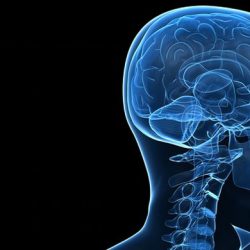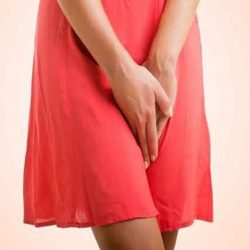Sugar has been a part of the human diet since sugarcane was domesticated in 8000 B.C., but today myths and misunderstandings about sugar and the role it plays in health abound. In the media, sugar has been linked to obesity, toxicity, addiction, and fatty liver disease, among a host of other health outcomes, but with little, no or poor research to back up such claims, according … [Read more...]
Women Health News

After menopause, vulvovaginal troubles are common and linked with other pelvic problems: A Study
After menopause, more than half of women may have vulvovaginal symptoms that have a big impact on their lifestyle, emotions, and sex life. What's more, the symptoms tend to travel with other pelvic troubles, such as prolapse and urinary and bowel problems. But many women aren't getting help, shows a study published online in Menopause, the journal of The North American … [Read more...]
Cystic fibrosis discovery may lead to new treatment strategy to help patients breathe easier: An Irish Study
A team led by UC San Francisco professor of medicine John Fahy, MD, has discovered why mucus in the lungs of people with cystic fibrosis (CF) is thick, sticky and difficult to cough up, leaving these patients more vulnerable to lung infection. Fahy and his team found that in CF -- contrary to previous belief -- inflammation causes new molecular bonds to form within mucus, … [Read more...]
IBS managed effectively with the right drugs for the right symptoms: American Gastroenterological Association Guidelines
Up to 15 percent of the general adult population is affected by irritable bowel syndrome (IBS), and most patients struggle to find effective drug therapy. A new guideline from the American Gastroenterological Association (AGA) provides these patients and their physician's guidance. The new guideline and accompanying technical review have been published in Gastroenterology, the … [Read more...]
Low Vitamin C Levels Linked To Inflammation With Severe Leg Artery Disease: A Study
Low levels of vitamin C in the blood are linked to a more severe form of peripheral artery disease, an often painful condition in which the leg blood vessels become blocked, according to a report in today's Circulation: Journal of the American Heart Association. Peripheral artery disease (PAD) is a form of atherosclerosis in which fatty deposits build up along artery walls … [Read more...]
Vitamin D can lower weight, blood sugar via the brain: University of Cincinnati Study
Vitamin D treatment acts in the brain to improve weight and blood glucose (sugar) control in obese rats, according to a new study. "Vitamin D deficiency occurs often in obese people and in patients with Type 2 diabetes, yet no one understands if it contributes to these diseases," said Stephanie Sisley, MD, the study's principal investigator and an assistant professor at … [Read more...]
New Plant-based alternative protein from the sea: A Study
When one hears the term "alternative protein source" tofu, tempeh and seitan are what typically come to mind. In the March issue of Food Technology, Toni Tarver writes about three lesser known, but just as nutritious and palatable alternative protein sources. Algae-Derived Proteins Algae are a diverse group of photosyntehetic organisms that are chiefly aquatic, contain … [Read more...]
Yoga can treat depression and anxiety: University of North Carolina Study
Across the country, health and human service providers have shown a growing interest in using yoga as an option for treating people who experience mental health problems. But a recent study from the University of North Carolina at Chapel Hill found that while there are some promising benefits to using yoga, there isn't yet enough evidence to support the practice as a standalone … [Read more...]
Tiny Balloon for Bowel Control
Fecal incontinence is a medical condition where people lose control of their bowels. It affects anywhere from two to 20 million women. That number is so broad because it is believed that most women are too embarrassed to come forward and talk about it. Now a new non-surgical treatment for women may be the answer to getting their lives back. Vacuuming and making the bed are … [Read more...]
Boosting brain cells appetites fight disease: University of Michigan Study
Deep inside the brains of people with dementia and Lou Gehrig's disease, globs of abnormal protein gum up the inner workings of brain cells, dooming them to an early death. But boosting those cells natural ability to clean up those clogs might hold the key to better treatment for such conditions. That's the key finding of new research from a University of Michigan Medical … [Read more...]
Common painkillers are most dangerous: Aarhus University Study
Many patients are prescribed NSAIDs for the treatment of painful conditions, fever and inflammation. But the treatment also comes with side effects, including the risk of ulcers and increased blood pressure. A major new study now gathers all research in the area. This shows that arthritis medicine is particularly dangerous for heart patients, and also that older types of … [Read more...]
Inability to control impulses reason for excessive use of mobile devices: Temple University Study
Some people frequently check and re-check their mobile phones. Once this impulse is triggered, it may be more a question of not being able to leave the device alone than actually hoping to gain some reward from it. These insights are drawn from a study by psychologists Henry Wilmer and Jason Chein of Temple University in the US and are published in Springer's journal … [Read more...]
New soft material to treat women suffering from urinary incontinence: University of Sheffield Study
Researchers at the University of Sheffield have developed a novel implantable material which could reduce the number of debilitating side-effects that occur as a result of using a material that is too rigid for surgical treatment of incontinence. In the UK, it is estimated between 3 and 6 million people suffer with some degree of urinary incontinence. Stress urinary … [Read more...]
Psoriasis and general bone loss linked: A Spanish Study
Researchers from the Genes, Development and Disease Group, headed by Erwin Wagner at the Spanish National Cancer Research Centre (CNIO) have discovered that psoriasis patients experience a widespread bone loss as a result of the disease. In addition, this paper, which is being published in the journal Science Translational Medicine, describes the molecular communication that is … [Read more...]
Women may keep verbal memory skills longer: Albert Einstein College of Medicine Study
Women may have a better memory for words than men despite evidence of similar levels of shrinkage in areas of the brain that show the earliest signs of Alzheimer's disease, according to a study published in the March 16, 2016, online issue of Neurology®, the medical journal of the American Academy of Neurology. According to study author Erin E. Sundermann, PhD, of Albert … [Read more...]
Guide to prescribing exercise for chronic health conditions: Canadian Medical Association
Exercise helps to alleviate the symptoms of many chronic health conditions such as knee osteoarthritis, low back pain, chronic obstructive pulmonary disease (COPD), diabetes, heart disease and more, yet it is often overlooked as a treatment. A review in CMAJ (Canadian Medical Association Journal) aims to provide an easy-to-use how-to guide for health care professionals to … [Read more...]
Incentives that work best to exercise more: University of Pennsylvania Study
Does it help to reward people if you want them to exercise more? Yes, but try a combination of individual and team incentives, says Mitesh Patel, MD, MBA, MS, of the University of Pennsylvania. He led a study in the Journal of General Internal Medicine, published by Springer, that also showed how smartphones can be a hassle-free way to monitor people's exercise … [Read more...]
Intervention in first 1000 days vital to fulfilling childhood potential: University of Maryland Study
Safeguarding the healthy development of the next generation is vital for the long term success of the United Nation's Millennium Development goals. New research in Annals of the New York Academy of Sciences highlights the need to integrate global strategies aimed at tackling nutrition and cognitive development within the first thousand days of childhood. "Global estimates by … [Read more...]
Americans have their heart health facts wrong: A Study
Despite the fact that heart disease is the leading cause of death for both men and women in the U.S., about three-quarters (74 percent) of Americans do not fear dying from it, according to a recent survey from Cleveland Clinic. Conducted as part of its "Love Your Heart" consumer education campaign in celebration of Heart Month, the survey found that Americans are largely … [Read more...]
Weight loss surgery increases social acceptance but body remains problematic: University of Oslo Study
All of a sudden the once obese women are treated with respect in society. But underneath the clothes the skin is saggy and it takes a long time to become familiar with the "new" stomach. Food which was easily digested one day makes them sick the next. The slimmer they get, the more loosely hangs the skin on their body. They get looks from men which they didn't get before. … [Read more...]
Beta-blockers could reduce the risk of COPD: A Study
Beta-blockers could be used to reduce the risk of chronic obstructive pulmonary disease (COPD) exacerbations, according to new findings. Beta blockers are primarily used to treat stress or heart problems, such as high blood pressure and angina, but these new findings suggest they could have a potential benefit for patients with COPD. COPD exacerbations involve a worsening … [Read more...]
Exercise helps young people with psychosis symptoms: Manchester University Study
An exercise programme devised by researchers at the University of Manchester has dramatically reduced symptoms among young people with first-episode psychosis. The long-term prospects for young people who are diagnosed with psychosis are typically poor, with high rates of relapse, unemployment and premature death. The antipsychotics they are prescribed also cause rapid … [Read more...]
People who are ready to engage in greater amounts of pain perform better in exercise activities: University of Kent Study
Senior lecturer Dr. Lex Mauger and PhD student Ali Astokorki of the School of Sport and Exercise Sciences at the University of Kent have showed that traditional methods of measuring pain in experiments -- such as thermal, pressure or electrical stimuli -- may be unsuitable for investigating the relationship between exercise and pain. They also found that people who are ready to … [Read more...]
Vitamin D may help prevent and treat diseases associated with aging: Loyola University Study
Vitamin D may play a vital role in the prevention and treatment of diseases associated with aging, according to researchers at Loyola University Chicago Marcella Niehoff School of Nursing (MNSON). These findings were published in the latest issue of the Journal of Aging and Gerontology. Researchers reviewed evidence that suggests an association between vitamin D deficiency … [Read more...]
Practicing tai chi reduces risk of falling: A Taiwanease Study
Recently, researchers compared the effects of tai chi to leg strengthening exercises (a physical therapy called "lower extremity training," or LET) in reducing falls. Falls are a leading cause of serious injuries in older adults and can lead to hospitalization, nursing home admission, and even death. Arthritis, heart disease, muscle weakness, vision and balance problems, … [Read more...]
Retirement leads to positive lifestyle changes: University of Sydney Study
A landmark study led by University of Sydney has found that people become more active, sleep better and reduce their sitting time when they retire. Published in the American Journal of Preventative Medicine, the study followed the lifestyle behaviours of 25,000 older Australians including physical activity, diet, sedentary behaviour, alcohol use and sleep patterns. "Our … [Read more...]
Teens who consume energy drinks more likely to use alcohol and drugs: University of Michigan Study
Nearly one-third of US adolescents consume high-caffeine energy drinks or "shots," and these teens report higher rates of alcohol, cigarette, or drug use, reports a study in the January/February Journal of Addiction Medicine, the official journal of the American Society of Addiction Medicine. The journal is published by Lippincott Williams & Wilkins, a part of Wolters … [Read more...]
Evidence that shivering and exercise may convert white fat to brown: Australian Study
A new study suggests that shivering and bouts of moderate exercise are equally capable of stimulating the conversion of energy-storing 'white fat' into energy-burning 'brown fat'. Around 50 g of white fat stores more than 300 kilocalories of energy. The same amount of brown fat could burn up to 300 kilocalories a day. Endocrinologist Dr Paul Lee, from Sydney's Garvan … [Read more...]
Keeping cool could spur metabolic benefits: A Study
A new study being presented today at the joint meeting of the International Society of Endocrinology and the Endocrine Society in Chicago, demonstrates that ambient temperatures can influence the growth or loss of brown fat in people. Cool environments stimulate growth, warm environments loss. Brown fat, also known as brown adipose tissue, is a special kind of fat that burns … [Read more...]
Raising low vitamin D levels lowers risk of prediabetes: Indian Study
Vitamin D and calcium supplementation along with diet and exercise may prevent type 2 diabetes in prediabetic individuals who have insufficient vitamin D in their bodies, a study from India suggests. The results were presented Saturday at the joint meeting of the International Society of Endocrinology and the Endocrine Society in Chicago. Vitamin D deficiency has been linked … [Read more...]
- « Previous Page
- 1
- …
- 6
- 7
- 8
- 9
- 10
- …
- 96
- Next Page »





























